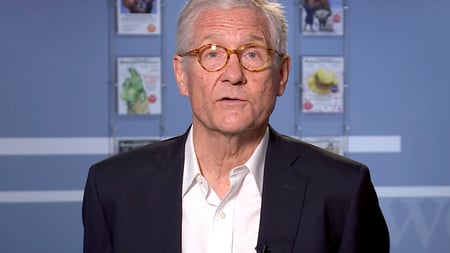Google search likely stok
Google search likely stoked fear China hacked Hillary Clinton's private email server
A multi-pronged government review of whether China successfully hacked former Secretary of State Hillary Clinton's private email server failed to turn up evidence of a successful breach.
Senate investigators, the FBI, the intelligence community inspector general, and the Justice Department inspector general were unable to confirm whether an intrusion into the server occurred, according to two top Republican senators who released a memo on their investigation Wednesday.
The memo from Sens. Chuck Grassley of Iowa and Ron Johnson of Wisconsin shows concerns about a Chinese state-owned company hacking Clinton's server were likely due to an over-reliance on a simple Google search.

The Senate inquiry began after an anonymously sourced article from the Daily Caller News Foundation in April 2018 said that a Chinese company succeeded in hacking the server. The report said a firm, located in the Washington, D.C., area, had access to Clinton's emails in real time, courtesy of a code embedded in the New York-based server which then made copies of the emails, some of which contained classified information.
The newly released memo shows that these concerns were likely because of mistaken cyber identity, although Grassley and Johnson stressed that “neither the committees nor the FBI were able to confirm whether an intrusion into the server occurred."
Paul Combetta, a tech aide who administered the server, told the FBI he created a "dummy" email account to transfer archived emails into a mailbox entitled "HRC archive" on another server. The existence of that “dummy” email account was revealed in the DOJ inspector general’s report on the Clinton email investigation, dubbed “Midyear Exam" and released in June 2018. Cambetta, who also used software designed to prevent forensic recovery while deleting Clinton’s emails, “refused to speak” with the DOJ inspector general or Congress.
Frank Rucker, a former analyst for the intelligence community’s inspector general, observed in late 2015 or early 2016 what he called an “anomaly” during his work-related review of emails from Clinton's private email server. Rucker, who was separately interviewed by both the DOJ and intelligence community watchdogs, told them he believed the routing information of all but four of the 30,490 copies of Clinton’s emails he looked at included a suspicious embedded email address. That email address ended up being the “dummy” email address already noted by the DOJ’s inspector general.
Rucker brought this to the attention of then-inspector general of the intelligence community, Charles McCullough, and they conducted a Google search of the email address, which produced results for “Shandong Carter Heavy Industry Machinery" located in the Shandong Province of China. This company name was similar but not identical to the dummy email address.
A letter from the two inspectors general stated that, because of this finding, Rucker believed Clinton’s server “may have been hacked by a Chinese company or the Chinese government,” although he “had no further information connecting the dummy email address with any Chinese entity.”
This information was passed by Rucker to the FBI team handling the Clinton investigation in early 2016.
Rucker was accompanied by Jeanette McMillian, the former general counsel for the intelligence community’s inspector general’s office, during his February 2016 meeting with the FBI. Peter Strzok, a former deputy assistant director of the Counterintelligence Division who was fired from the FBI in 2018, was in attendance.
Ultimately, the two inspectors general said DOJ’s watchdog “did not identify any information obtained by the FBI during the Midyear investigation reflecting that Combetta’s dummy email account was associated with a Chinese company or the Chinese government.”
Senate investigators wrote that “some members of the FBI investigative team seemed indifferent to evidence of a possible intrusion by a foreign adversary into Secretary Clinton’s non-government server." Grassley and Johnson wrote the investigation confirmed that some State Department officials attempted to use “lower-level” exemptions under the Freedom of Information Act “to prevent the release of emails that other experts deemed to be classified.”
Grassley, who shifted from being chairman of the Judiciary Committee to chairman of the Finance Committee this year, has been at the forefront of leading congressional inquiries into Clinton's use of an unauthorized private email server during her tenure as secretary of state.
Stemming from another facet of his oversight efforts, the State Department wrote to Grassley to say a review of the mishandling of classified information found 23 "violations" and seven "infractions" by 15 individuals.
The State Department review began after the FBI investigated Clinton's use of an unauthorized server, hosted in the basement of her home in Chappaqua, New York, during her time as secretary of state from 2009 to 2013. Former FBI Director James Comey publicly recommended in 2016 that no charges be brought against Clinton, who was then a candidate for president, but admonished Clinton and her colleagues for being "extremely careless" in handling classified information.
One of the main controversies stemming from Clinton's emails was how a technician managing the server deleted 33,000 emails. The FBI was only able to recover about 5,000 of the emails, which were released in tranches up until earlier this year as part of a Judicial Watch lawsuit. Clinton has said she "never received nor sent any material that was marked classified," but the FBI found 110 emails did contain classified information.
Republicans have seized on the prospect of the Chinese hacking Clinton's server. For instance, Rep. Louie Gohmert accused FBI Director Christopher Wray during a May hearing of being involved in a pro-Clinton cover-up.
"It comes in and decides we are going to go after the attorney general who is trying to clean up the mess," Gohmert said. "Christopher Wray sure hasn't. Instead of asking from the Intel community, 'Let us see the 100% certain proof you have that Hillary Clinton's personal server was hacked by China,' no, he covers it up and we still haven't seen it. They haven't asked to see it."

No comments:
Post a Comment
Comments always welcome!